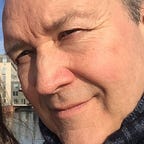Manifesto from an elder: 57 years in the making
Give me someone who can talk about their in between places, not their successes, achievements and ambitions. Someone who has done the work of traversing the wild current of their own innards, their dark history; someone who has travelled and understood what appears to be the most insignificant cul-de-sac of their deepest being.
I am not interested in those who can bang a drum, perform a ritual and look good. I am interested in the person who will tell it how it is, talk straight, disappoint me to support themselves, understand the simple value of kindness over spiritual trickery, clear with me by making an amend when wrong while looking me in the eye and speaking from the heart.
Those people are few and far between in my experience yet I would take one of those, the person whose heart is true, over any number of do-gooders, shamanic pretenders or weekend warriors. It is interesting how deep psychotherapy has gone out of vogue, the slow pain-staking work of true self enquiry in favour of quick fixes and sudden shifts.
Some people like to think they will be immune from pain the more they mature in consciousness. But that is simply a ploy by a mind still burdened by the fantasy of its own power. The more conscious we become, it seems the more sensitive we are, not less. Shams, the poet Rumi’s master, moved away, in pain, from those whose unconsciousness assaulted his depth of awareness and Love.
Isolation is, ultimately, preferable to a long bath in idiocy.
It is a great mistake to always be trying to escape our vulnerability, be positive at every moment, always to be on the up and on the make. For as the poet David Whyte points out, there is no escape from it, we are our vulnerability. So the question is more about how we become one with it without letting it consume us, rather than trying to outrun it, control it, and allow pride to throw a veil over our humanness.
In reality, whoever we are, sometimes the floor keeps opening and we just keep on falling through it to yet another rock bottom. Along the way, we pass through those feelings we spent a lifetime or more avoiding, until we reach the core of the conditioned mind — worthlessness and self hatred — only to finally discover that within us lies an invincible summer.
Courage is required not to circumvent this process, and faith. If you just want ‘love and light’ in your life don’t even begin, keep holding on to what makes the ego feel safe. But it seems to me, that for all of us, there comes a point when the only thing we can do is to let go and live our own peculiar passage through time until we land in eternity.
The current idea that we must heal or fix everything is based, I believe, on a flawed concept of what it is to be a human being. Rather than always thinking of being better, we could simply keep opening to those pockets of unconsciousness we all carry, allowing their gifts to come forth. We are not static entities, but life unfolding, awareness awakening slowly, over time so we can integrate at all levels. There is no rush. We will all end on a breath.
As for relationships, I know that infatuation is a potent impostor, an ersatz love, a sugar-hit for the soul, that simulates the real thing, a near miss that is a million light years away. It is the mind’s version of what love looks like when it has had a failed, often devastating, experience of the real thing. It is so beset by desire, fear and projection it has little hope of peering out of the fog of its imaginings to see clearly.
And yet somewhere, hidden in its dark and desperate recesses is the grain of something finer. There is no wanting in love and to arrive at this place, where the only desire is for the beloved’s happiness, will excoriate the ego.
To transform infatuation into love is one of life’s true rarities, yet holds the seeds of greatest potential for true love and freedom. Yet it means a complete transformation in outlook and attitude with the ego no longer dominated by consciousness but sinking roots deep into the unconscious where all its repressed memory of failed love lives.
These are some of the things I have learned, and I am reminded of the words on love from the first spiritual book I read, Scott Peck’s The Road Less Travelled: ‘Love is the willingness to extend oneself for your own or another’s spiritual growth.’
